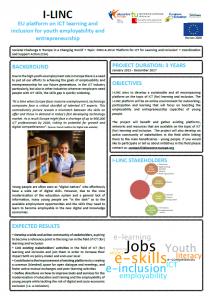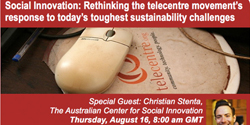07 Jan Digital Learning Needs Citizen-Driven Innovation
07 Jan, 2015
The Digital Learning Round Table held in Luxembourg was the first of its kind in the context of the Horizon 2020 programme focusing on digital learning in Europe. The event was held on December 16, 2014 by the European Commission’s DG Connect.
Technology-enhanced learning (TEL) has been financed by EU research & innovation programmes since 2008 and is the drive for innovation in digital learning. Patricia Manson (Head of Unit Inclusion, Skills and Youth) who welcomed the participants with her introduction, specified three overall strategic goals:
- Promote excellence in education and skills through pervasive access to digital learning and 21st century competencies
- Ensure adequacy between skills and employment market
- Support to a triple play: innovation, inclusion (digital literacy) and economic impact (growth and jobs), and development of learning technology market in Europe.
These goals also reflect the efforts being made by our member organisations where digital inclusion is driven by new ideas and initiatives that leave a mark in lifelong learning and labour market.
TE Managing Director Gabriel Rissola, who participated in one of the parallel sessions Digital learning for future work and life, thinks that more research about local citizens’ needs, bottom-up, participatory innovation processes, and digital learning delivery modes are needed to modernise education and training systems to support Europe’s highest ambitions. G. Rissola concluded:
“We are debating about the innovations needed to adapt the educational system to the new challenges faced by Europe. However we are not systematically thinking how to embed education into European innovation systems (for example, into regional smart specialization strategies). If we consider citizens a critical actor of innovation systems (at the same level as government, industry and academy), the role of schools and non-formal learning spaces (like telecentres, public libraries, coworking spaces or living labs) becomes critical to facilitate citizen-driven innovation.”
The roundtable was also an occasion for Telecentre Europe to present its new project and EU platform I-LINC to be launched this month. I-LINC is funded by Horizon 2020.
Recorded sessions of the event and a keynote presentation of DLRT are available online.










